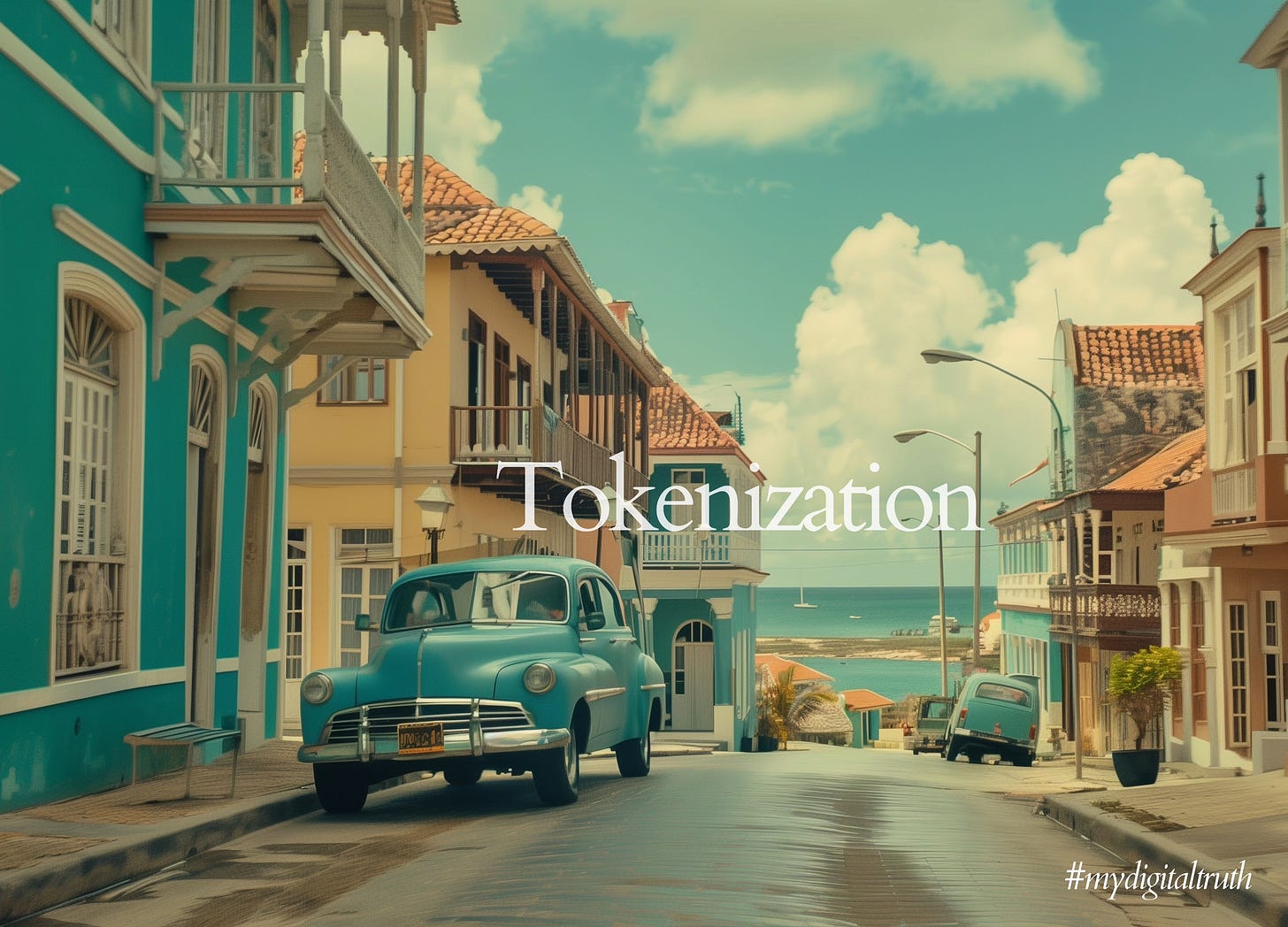The Importance of Tropical Islands to Tokenization
Explore the intersection of fintech innovation and tropical heritage with insights from the TSSAG Thought Leadership Event in Singapore, where experts discuss tokenization's future and Curaçao's pivot
Last week, I had the pleasure of speaking at an event organised by the Securities Services Advisory Group #TSSAG and The Singapore Fund Directors Association #SFDA, covering three important topics concerning the Asian investment landscape:
The developments in the Indian capital market,
The market adoption of the VCC fund structure, and
Tokenisation.
It was a special event for several reasons, the most significant being that I walked away feeling I had learned more from the audience than I could share as a participant. I hope this doesn’t come across as too vain because I genuinely found the discussions at this invite-only event quite enlightening. This is largely due to TSSAG being a group of consulting and advisory firms managed by former banking executives turned into industry experts with a mandate to advise, described as the “start-up of 55-year-olds" by someone aptly. And I think that’s excellent. Who says startups are only for 20-year-olds?
My days of speculating on the Indian capital market are long behind me, not for a lack of returns but due to the constant dilemma of whether to sell and lock in my profit, given the significant volatility back then. This is something the modern-day crypto investor would undoubtedly recognise. The State Bank of India, the sole stock in the inventory of my trading empire at the time, will forever be synonymous with sleepless nights - at least in my mind. This was all before the financial crisis when some Indian banking stocks really created abnormal returns, until I found something even more lucrative: a German-Irish bank called Depfa, in the supposedly safe business of mortgage securitisation. I sold my stake well before (ill-managed) mortgage-backed securities became synonymous with the financial crisis in 2008, not because I foresaw the turmoil but because I yearned for sleep - not exactly a decision based on rational thinking or logic. It’s funny how sometimes a decision leading to a favourable outcome can be based on anything but logic.
Listening to the panel provided a refreshing update on the significant progress made in market infrastructure since then, although it's perhaps not surprising when the moderator and some of the speakers are die-hard believers in the Indian development story. We really should have had some counterpoint, perhaps with the Chinese development agency intervening to debate which country has the better CSD. That's a fun idea for the next conference! Actually, I shouldn't joke here. I’ve listened to my fair share of speeches from UK government officials proclaiming the UK’s world-leading status in, well, anything you can think of.
Fund Administration: ‘Wer hat's erfunden?’ (Who Invented It?)
This time, the answer isn't the Swiss (if that seems like gibberish, it's probably because you might not speak German or recall the iconic Ricola commercial about the origins of their herbal candies).
One of the intriguing insights I gained at the event was the history of fund administration, a story populated with competing truths, or as I prefer, a history across alternate universes. The distinction of the first mutual fund often goes to the Massachusetts Investors Trust, established in 1924. This open-end mutual fund introduced a structure allowing the issuance of new shares to incoming investors and the repurchase from those exiting, enhancing accessibility and liquidity for the average investor and laying the foundation for the mutual fund industry. But did Massachusetts also invent fund administration as we recognize it today? The answer, in Dutch, is 'echt niet' (no way).
For that, we must thank the Smeets family, who, in 1939, began assisting Dutch nationals in moving their wealth offshore on the eve of WWII, doing so in Curaçao, then the Netherlands Antilles. Interestingly, Curaçao experienced significant immigration of Sephardic Jews in the 17th century, fleeing persecution in Spain and Portugal, illustrating how historical events can interconnect across centuries.
Following this, various tax treaties between the offshore center and the United States catalyzed the provision of sub-fund services for offshore funds. And, if we are to believe a seemingly well-researched article, the first offshore fund launched by George Soros in 1969 marked the genesis for the fund administration sector. The 1970s then heralded a period of significant growth and innovation within the mutual fund industry, driven by several factors, including the introduction of the first money market fund in 1971, offering investors interest earnings on short-term securities.
In our blockchain era, fund administration emerges as a crucial and challenging aspect. The requirement to record ownership and transaction history encompasses not one, but multiple truths valid in their contexts: a custody book of records, an accounting book of records, among others (e.g., investment book of record). This implies reconciliation or a comparable control process, even as we move toward tokenizing financial markets. Thus, Curaçao has given the world not just a liqueur flavored with the dried peel of bitter oranges but also a reconciliation problem for tokenization.
Who would have thought?




